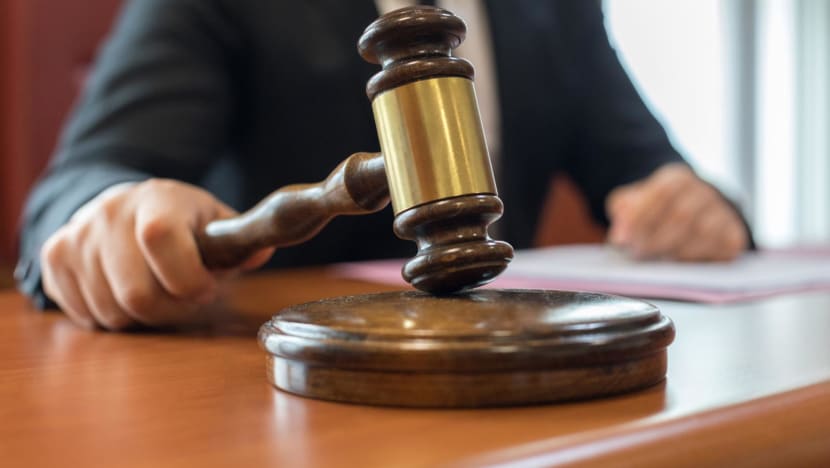Commentary: More than just sick leave, MCs hold legal weight that can influence criminal cases
The ease of obtaining medical certificates from telemedicine providers raises risks beyond the workplace, given how the courts rely heavily on MCs in dispensing justice, says Fortress Law Corporation’s Mark Yeo.


This audio is generated by an AI tool.
SINGAPORE: Medical certificates (MCs), and the ease with which patients have been able to obtain them through telemedicine providers, were recently thrust into the spotlight.
Following reports regarding the “excessive issuance” of MCs without proper clinical assessments and follow-ups, the Ministry of Health (MOH) is considering tightening regulations. Proposed measures include requiring every MC to include the name and medical registration number of the issuing medical practitioner.
In a joint circular with the Singapore Medical Council (SMC) sent to doctors, the authorities also reminded medical practitioners of their professional obligations, noting that MCs are “medico-legal documents which carry professional and legal implications”.
At least one clinic, Medstar Medical Clinic & Surgery, is under investigation for issuing MCs without any audio or video consultation on its telemedicine service PocketCare.
The joint circular has reignited the long-running debate on the relevance of medical certificates in today’s employment landscape, especially in a post-COVID world.
Some firms are rethinking their MC policies, allowing employees to take paid sick leave without needing a doctor’s note. The Ministry of Manpower (MOM) has also advised employers against requiring MCs from employees who test positive for COVID-19 using self-administered test kits.
MEDICAL CERTIFICATES IN CRIMINAL PROCEEDINGS
At its core, an MC is a certification by a medical professional that the patient is ill or medically unfit for certain types of activities. The SMC’s Ethical Code and Ethical Guidelines thus requires that MCs be issued “on proper medical grounds arrived at through good clinical assessment”.
While MCs are often used as documentation for absence from work or school, they also play a critical role in other areas.
In the area of criminal justice, when individuals are charged with hurt-based offences, the duration of an MC - which represents how long a person is ill or medically unfit for certain activities - can affect both the types of charges brought against them and the severity of their sentences. For other types of offences, MCs may even be used by the accused as a defence.
DO MORE MC DAYS TRANSLATE INTO HARSHER SENTENCES?
Understanding why MCs are relevant in this area first requires an elaboration on the difference between “hurt” and “grievous hurt” under the law.
Under the Penal Code, “hurt” is defined as “bodily pain, disease or infirmity”, and broadly includes injuries such as bruises and abrasions. On the other hand, “grievous hurt” extends to more serious injuries such as fractures or permanent disabilities like the loss of sight or hearing.
Importantly, the definition of “grievous hurt” also includes injuries that cause “the sufferer to be, during the space of 20 days, in severe bodily pain, or unable to follow his ordinary pursuits”.
This is where MCs become relevant. Since “ordinary pursuits” would include going to work, if an MC issued to a victim cumulatively exceeds 20 days, this would mean that the accused caused grievous hurt.
When grievous hurt is established, the severity of the charges against the accused escalates.
For example, the offence of “voluntarily causing hurt” under the Penal Code carries a maximum punishment of three years’ jail, or a S$5,000 fine. In contrast, the offence of “voluntarily causing grievous hurt” carries a jail term of up to 10 years, with the possibility of additional fines or caning.
Similar step-ups in penalties also apply most commonly to offences such as careless or dangerous driving under the Road Traffic Act
Even within the definitions of “hurt” and “grievous hurt”, the courts frequently assess the degree of harm caused when deciding on sentencing. This rationale is straightforward: Generally, the greater the harm, the more severe the sentence.
In this context, the courts often use the duration of medical and hospitalisation leave as a rough measure of the severity of the victim’s injuries, as it represents a medical professional’s assessment of the time needed for the victim to resume his normal activities.
With the increasing use of sentencing frameworks that place primary importance on the offender’s culpability and the harm suffered by the victim, MCs play a significant role in influencing not only the type of offence an accused is charged with, but also the severity of the sentence handed down.
A HEALTHY LEGAL SYSTEM REQUIRES RELIABLE MCS
MCs may also be used by some as an excuse for certain obligations under the law.
For example, individuals under drug supervision programmes are often required to undergo routine urine tests at the Central Narcotics Bureau (CNB), often weekly or twice weekly.
Failing to do so constitutes an offence, unless the supervisee provides a valid reason for his absence, such as illness, supported by an MC.
This would also apply to individuals who are required to routinely report to a police station as part of their bail conditions, or attend court hearings, although the MC would need to specifically excuse the patient from court proceedings, which is anecdotally rarely given.
The gravity with which the courts view fraudulently obtained MCs is shown through the consequences meted for such conduct. In 2017, a lawyer known as S K Kumar was disbarred for, amongst other things, advising his client to obtain a medical memo under false pretences to justify his client’s absence from a court hearing in 2014. Mr Kumar had done so because he forgot to inform his client that there was a hearing fixed on that day for his case.
While the medical memo was not eventually tendered to court, the fact he had advised his client to obtain one fraudulently eventually became a basis for causing the lawyer to be struck off.
Seen in this light, the ease at which patients may obtain MCs from telemedicine providers raises risks beyond the workplace, given how the courts rely heavily on MCs in dispensing justice.
More than simply allowing an employee to be excused from work, MCs carry other legal implications that affect the life and liberty of others.
Mark Yeo is a Director at Fortress Law Corporation. He was formerly a Deputy Public Prosecutor with the Attorney-General’s Chambers.


















